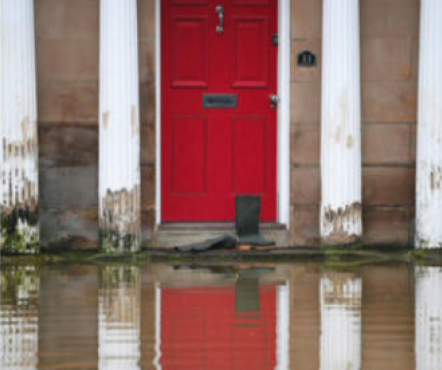The second channel is financial firms’ exposure to the hazards of rising temperatures.
第二個方面是金融公司會暴露在氣溫上升所帶來的危害中。
Attributing individual natural disasters to climate change is tricky, but the Financial Stability Board, a group of regulators,
將單個自然災(zāi)害歸咎于氣候變化有點強(qiáng)人所難,但由監(jiān)管機(jī)構(gòu)組成的金融穩(wěn)定委員會(Financial Stability Board)估計,
estimates that global economic losses resulting from weather-related catastrophes went from $214bn in the 1980s, in 2019 prices, to $1.62trn in the 2010s, roughly trebling as a share of global GDP.
與天氣相關(guān)的災(zāi)害所造成的全球經(jīng)濟(jì)損失從上世紀(jì)80年代的2140億美元(按2019年價格計算)上升至2010年代的1.62萬億美元,占全球GDP的比例大約增加了兩倍。
These losses are often borne by insurers (though over time the costs should be passed on to customers through higher premiums).
這些損失通常由保險公司承擔(dān)(不過,隨著時間的推移,其成本應(yīng)該通過更高的保費(fèi)轉(zhuǎn)嫁到了客戶身上)。

The financial system could also be exposed to any wider economic damage caused by climate change, say if it triggered swings in asset prices.
如果氣候變化引發(fā)資產(chǎn)價格波動,金融體系也可能受到氣候變化造成的更廣泛的經(jīng)濟(jì)損害。
This third channel is harder to quantify.
第三個方面不太好量化。
Academic estimates of the effect of 3°C of warming (relative to pre-industrial temperatures) veer from financial losses of around 2% to 25% of world GDP, according to the Network for Greening the Financial System, a group of supervisors.
根據(jù)監(jiān)管機(jī)構(gòu)綠色金融系統(tǒng)網(wǎng)絡(luò)(Network For Green The Financial System)的數(shù)據(jù),學(xué)術(shù)上對全球變暖3攝氏度(相對于工業(yè)化前的溫度)所帶來的經(jīng)濟(jì)損失的估計,約占世界GDP的2%到25%不等。
Even the gloomiest estimate might prove too rosy if climate change triggers conflicts or mass migrations.
如果氣候變化引發(fā)沖突或大規(guī)模移民,那即便最悲觀的預(yù)測也可能變得過于樂觀。
Perhaps the worst-case scenario for the financial system is where transition risks crystallise very suddenly and cause wider economic damage.
對于金融體系來說,最糟糕的情況可能是轉(zhuǎn)型風(fēng)險突然顯現(xiàn),并造成更大范圍的經(jīng)濟(jì)損害。
In 2015 Mr Carney described a possible “Minsky moment”, named after Hyman Minsky, an economist, in which investors’ expectations about future climate policies adjust sharply, causing fire sales of assets and a widespread repricing of risk.
2015年,卡尼描述了一個可能的“明斯基時刻”(以經(jīng)濟(jì)學(xué)家海曼·明斯基(Hyman Minsky)的名字命名),即投資者對未來氣候政策的預(yù)期大幅調(diào)整,導(dǎo)致資產(chǎn)賤賣和大范圍的風(fēng)險重新定價。
That could spill over into higher borrowing costs.
這可能會導(dǎo)致借貸成本上升。
譯文由可可原創(chuàng),僅供學(xué)習(xí)交流使用,未經(jīng)許可請勿轉(zhuǎn)載。











